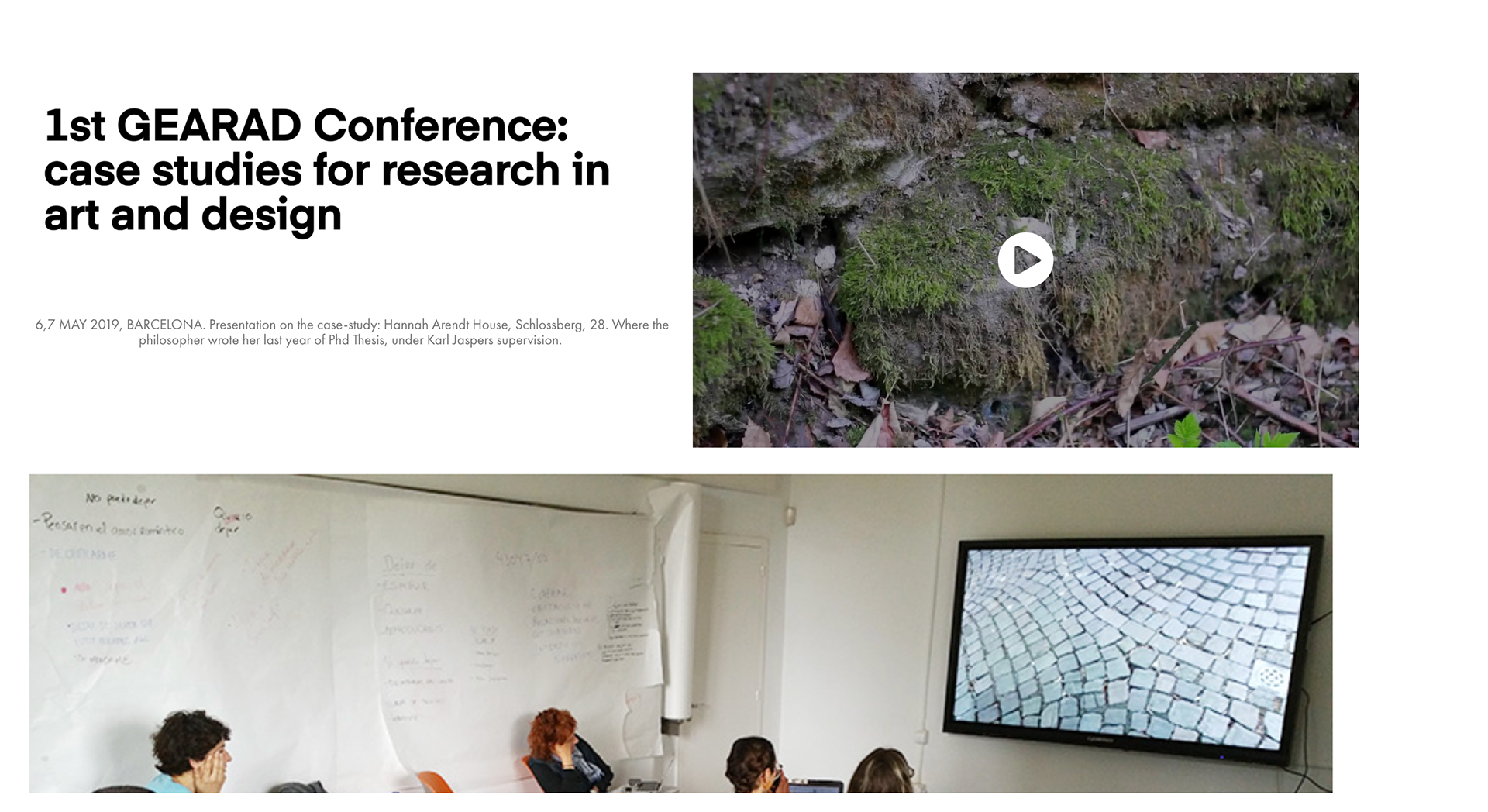"Time exists only insofar as it can be measured, and the yardstick by which we measure it is space. Where is the space located that permits us to measure time? For Augustine the answer is: in our memory where things are being stored up. Memory, the storehouse of time, (…)”.
Extract from Hannah Arendt’s dissertation Love and Saint Augustine
(1926-1928)
(1926-1928)

Chaque génération, sans doute, se croit vouée à refaire le monde. La mienne sait pourtant qu'elle ne le refera pas. Mais sa tâche est peut-être plus grande. Elle consiste à empêcher que le monde se défasse.
Albert Camus, discours réception Prix Nobel, décembre 1957.
Video-Essay 2018, Heidelberg, Schlossberg 16
Liebesbegriff bei Augustin, Phd Thesis, 1926-1928, published 1929, under supervision of Karl Jaspers.
Case-study about memory and public space.
My thesis is that it was enough with the landscape and this empty slot. This destroyed house is a reminder of her gap in academia in Europe. She theorizes about the need to be out of the comfort of the four walls in politics, in her inmmediate essays in the aftermath of war. Never come back.
Nowadays this empty place, where before, just I went for study reasons and thinking, it is closed being a private parking. I consider that putting a chain to this space is not necessary. It is a place that appartains to the world and the forest. I left. I would never could make this video under the present circumstances being it closed with a chain.
Public space conditions memory not only in time, in space. To let space without monuments it is another way of remembrance, without the need to set a representative framework, or memorial.
I studied this house destroyed in the 60s or 70s, in the path leading to the oldest University of Germany, having still the building of a city of wisdow, Universität, with universal knowledge out of nationalities, in contrast with a city-stadt, where the rules are set under a framework of citizenship that it can be broken depending on nationality. This is what she theorizes, from the previous idea of Augustine.
Without time or space, like digital records, it is only possible to have time, but without experience, memory is impossible. This is a warning for the future of this world, where there would be childhood without memory for instance of tears in the rain. Then they can't share or understand a poem or a philosophical text, because is abstract and they will lack of references of understanding.
This is why maybe to set frames of space, like this house empty, without a definite and closed meaning in memory in the public space, this frame it can vary depending on cultures or countries.
Albert Camus’ speech at the Nobel Banquet at the City Hall in Stockholm, December 10, 1957
French: https://www.nobelprize.org/prizes/literature/1957/camus/25232-albert-camus-banquet-speech-1957/
English: https://www.nobelprize.org/prizes/literature/1957/camus/speech/
Audio: https://ia903205.us.archive.org/25/items/CamusDiscoursPrixNobel1957/Camus_DiscoursPrixNobel1957.mp3